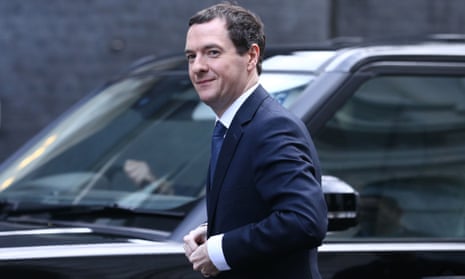A key component of every budget is the distributional analysis, which shows how the chancellor’s spending decisions will affect households across the income spectrum. However, despite its obvious importance, the government removed this analysis from last year’s emergency summer budget. We believe this is a serious mistake.
It is a vital function of government to clearly detail the implications of its policies on the finances of different income groups. Moreover, in order to tackle poverty, inequality, and other social ills, it is important that government publishes its most robust data to provide an accurate account of the scale of these problems. This includes data on whether government policies effectively alleviate or exacerbate them.
We therefore call on the government to reinstate its publication of a distributional analysis at the forthcoming budget, to provide a transparent account of how it will affect different households throughout the UK. This is matter of both clarity and good governance.
Sean Baine Chair, The Equality Trust
Stefan Stern Director, High Pay Centre
Alison Garnham Chief executive, Child Poverty Action Group
Niall Cooper Director, Church Action on Poverty
Helen Drewery General secretary, Quaker Peace and Social Witness
Jonathan Bradshaw Emeritus professor, department of social policy and social work, University of York
Professor Donald Hirsch Director, Centre for Research in Social Policy, Loughborough University
Marc Stears Chief executive, New Economics Foundation
It’s a difficult business, running the country in the national interest, shaping the national budget to avoid antagonising those you believe to be your supporters, having an eye to future internal party elections while still making time to be photographed in warehouses and building sites across the country dressed in protective clothing – but George Osborne is so dedicated to his cause that he manages it all (Osborne prepares for key moment in battle for Tory leadership, 12 March).
However, as someone allegedly more ready to consider progressive tax policies than his boss he remains resolute in attacking the social security system that truly is a lifeline to disabled people, low-paid workers and many older people. Given this backcloth, it tells us all we need to know about the electorate he is most focused on that Tory MPs have been lobbying him on fuel duty, while cuts to personal independence payments and employment support allowance are being progressed with barely a voice being raised.
Les Bright
Exeter, Devon
Andrew Harrop’s article on John McDonnell’s public borrowing for investment points out its improvement on the chancellor’s deficit obsession (John McDonnell’s new fiscal rule is strong, but it’s no election winner, theguardian.com, 11 March). Of particular concern is George Osborne’s determination to “balance the books” by cutting current spending on the disabled. To McDonnell’s widely accepted principle of borrowing to invest so as to expand the nation’s income at a time of private sector weakness, we add a complementary guideline for macroeconomic stability: adjust current expenditure for demand management. If as is now the case, interest rates are low, exports contract and demand remains weak, responsibility falls on the public budget to prevent recession by expanding income. Once started, investment expenditures are relatively inflexible to adjust, making current (day-to-day) expenditure the rational choice for demand expansion. Come that happy day when the economy starts to overheat, current spend should be reduced.
As Keynes argued: the boom, not the slump, is the time for austerity. It is that simple.
Ann Pettifor Prime Economics
John Weeks SOAS, University of London
George Osborne still doesn’t understand economics, does he (Osborne announces extra £4bn budget cut, 14 March)? Taking money off the poorest people sucks it out of the economy for one simple reason: poor people spend every penny they get, they have to so that they can help their families stay alive; if they don’t get it, they can’t spend it so the economy stagnates. And giving more money to those who are better off does nothing, they just find ways to save their surplus money, as far from the tax authorities as they can – to the point of downright illegality – so anything you give them is also lost from the economy.
This means that every penny Osborne has “saved” though austerity, or given to the rich, has been subtracted from the economy. It’s that simple, George.
David Reed
London
I am old enough to remember disc jockey Kenny Everett’s exhortation at the 1983 Conservative conference: “Let’s kick Michael Foot’s stick away” to rapturous applause. The current government has gone one better, it’s going to kick 200,000 sticks away in the forthcoming budget.
Louis Hellman
London
